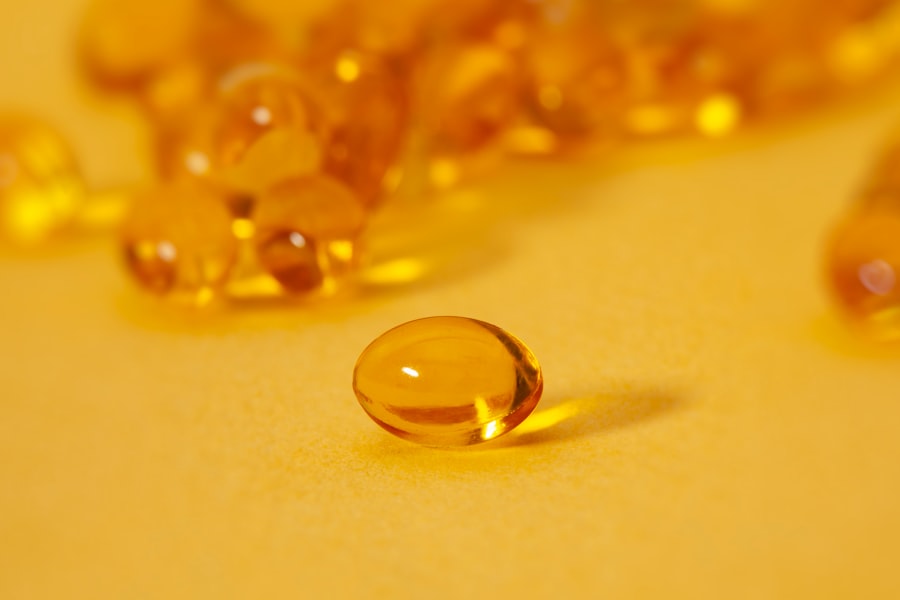As you navigate through life, the aging process inevitably affects your brain health. Understanding how aging impacts cognitive function is crucial for maintaining mental acuity as you grow older. The brain undergoes various changes over time, including a reduction in the number of neurons and synapses, which can lead to slower processing speeds and memory lapses.
You may notice that tasks that once seemed effortless now require more concentration and effort. This decline in cognitive function can be attributed to several factors, including oxidative stress, inflammation, and reduced blood flow to the brain.
These conditions can significantly impair your quality of life and independence. However, it’s essential to recognize that not all cognitive decline is inevitable. By understanding the factors that contribute to brain aging, you can take proactive steps to support your cognitive health.
Engaging in regular mental exercises, maintaining a balanced diet, and incorporating specific supplements into your routine can help mitigate some of the adverse effects of aging on your brain.
Key Takeaways
- Aging brain health is a natural process that can be supported through proper nutrition and supplementation.
- Supplements play an important role in maintaining and improving brain health as we age.
- Omega-3 fatty acids are essential for brain function and can be obtained through fish oil supplements.
- Vitamin B12 is crucial for cognitive function and can be taken as a supplement, especially for older adults.
- Ginkgo Biloba, Phosphatidylserine, Acetyl-L-Carnitine, Curcumin, Resveratrol, and Coenzyme Q10 are all potential supplements for aging brain health, but it’s important to choose the right ones based on individual needs and consult with a healthcare professional.
Importance of Supplements for Brain Health
In your quest for optimal brain health, supplements can play a vital role. While a well-rounded diet is fundamental, it may not always provide all the nutrients your brain needs to function at its best. As you age, your body’s ability to absorb certain vitamins and minerals may diminish, making supplementation a practical option.
Supplements can help fill nutritional gaps and provide your brain with the essential compounds it requires for optimal performance. Additionally, many supplements have been studied for their potential neuroprotective properties. They may help reduce inflammation, combat oxidative stress, and improve blood flow to the brain—all critical factors in maintaining cognitive function as you age.
By incorporating targeted supplements into your daily routine, you can support your brain health and potentially stave off cognitive decline. It’s essential to approach supplementation thoughtfully, considering both the benefits and potential interactions with other medications or health conditions.
Omega-3 Fatty Acids

One of the most well-researched supplements for brain health is omega-3 fatty acids. These essential fats are crucial for maintaining the structural integrity of brain cells and supporting overall cognitive function. Omega-3s are primarily found in fatty fish like salmon, mackerel, and sardines, but if you don’t consume these foods regularly, a supplement may be beneficial.
Research suggests that omega-3 fatty acids can help improve memory and cognitive performance while also reducing the risk of neurodegenerative diseases. In addition to their cognitive benefits, omega-3 fatty acids have anti-inflammatory properties that can protect the brain from damage caused by oxidative stress. This is particularly important as you age since inflammation is a significant contributor to cognitive decline.
By incorporating omega-3 supplements into your routine, you may enhance your brain’s resilience against age-related changes and promote long-term cognitive health.
Vitamin B12
| Age Group | Recommended Dietary Allowance (RDA) | Tolerable Upper Intake Level (UL) |
|---|---|---|
| Infants 0-6 months | 0.4 mcg | Not established |
| Infants 7-12 months | 0.5 mcg | Not established |
| Children 1-3 years | 0.9 mcg | Not established |
| Children 4-8 years | 1.2 mcg | Not established |
| Children 9-13 years | 1.8 mcg | Not established |
| Teens 14-18 years | 2.4 mcg | Not established |
| Adults 19 years and older | 2.4 mcg | Not established |
| Pregnant teens and women | 2.6 mcg | Not established |
| Breastfeeding teens and women | 2.8 mcg | Not established |
Vitamin B12 is another critical nutrient for maintaining brain health as you age. This vitamin plays a vital role in the production of myelin, the protective sheath that surrounds nerve fibers, ensuring efficient communication between neurons. A deficiency in vitamin B12 can lead to neurological issues such as memory loss, confusion, and even mood disturbances.
As you grow older, your body may have a harder time absorbing this essential vitamin from food sources, making supplementation necessary for some individuals. Moreover, research has shown that adequate levels of vitamin B12 are associated with better cognitive function and a lower risk of dementia. By ensuring you have sufficient B12 in your system—whether through diet or supplements—you can support your brain’s health and potentially stave off cognitive decline.
If you’re concerned about your vitamin B12 levels, consider consulting with a healthcare professional who can guide you on appropriate supplementation based on your individual needs.
Ginkgo Biloba
Ginkgo biloba is an herbal supplement that has gained popularity for its potential cognitive benefits. Derived from the leaves of the Ginkgo biloba tree, this supplement is believed to enhance blood circulation in the brain, which may improve memory and cognitive function. Some studies suggest that ginkgo biloba may help alleviate symptoms of anxiety and depression as well, making it a multifaceted option for those looking to support their mental well-being.
While research on ginkgo biloba has produced mixed results regarding its effectiveness in preventing cognitive decline, many individuals report positive experiences with this supplement. If you’re considering adding ginkgo biloba to your regimen, it’s essential to consult with a healthcare provider to ensure it aligns with your overall health plan and does not interact with any medications you may be taking.
Phosphatidylserine

Phosphatidylserine is a phospholipid that plays a crucial role in cell membrane integrity and function, particularly in brain cells. As you age, levels of phosphatidylserine may decline, potentially contributing to cognitive decline and memory issues. Supplementing with phosphatidylserine has been shown in some studies to improve memory, attention, and overall cognitive function in older adults.
This supplement works by supporting neurotransmitter function and promoting healthy communication between neurons. Additionally, phosphatidylserine has been linked to reducing stress levels and improving mood, making it an excellent option for those looking to enhance their overall mental well-being. If you’re interested in exploring phosphatidylserine as a supplement for brain health, consider discussing it with a healthcare professional who can provide personalized recommendations based on your specific needs.
Acetyl-L-Carnitine
Acetyl-L-carnitine (ALCAR) is an amino acid derivative that has garnered attention for its potential neuroprotective properties. This compound plays a vital role in energy metabolism within cells and is believed to support mitochondrial function in neurons. As you age, mitochondrial function can decline, leading to reduced energy production and increased oxidative stress in the brain.
Supplementing with ALCAR may help counteract these effects by enhancing energy metabolism and promoting cellular health. Research suggests that acetyl-L-carnitine may improve memory and cognitive function in older adults while also providing mood-enhancing benefits. Some studies have indicated that ALCAR supplementation may even have potential therapeutic effects for individuals with neurodegenerative diseases like Alzheimer’s.
If you’re considering adding acetyl-L-carnitine to your supplement regimen, it’s advisable to consult with a healthcare provider to determine the appropriate dosage and ensure it aligns with your overall health goals.
Curcumin
Curcumin, the active compound found in turmeric, has gained recognition for its anti-inflammatory and antioxidant properties. These characteristics make curcumin an appealing option for supporting brain health as you age.
Research has shown that curcumin may enhance memory and cognitive function while also promoting neurogenesis—the process of generating new neurons in the brain. Additionally, curcumin has been linked to improved mood and reduced symptoms of anxiety and depression. If you’re interested in incorporating curcumin into your routine, consider using it in cooking or exploring high-quality supplements that provide concentrated doses of this powerful compound.
Resveratrol
Resveratrol is a natural compound found in red wine, grapes, berries, and certain nuts that has garnered attention for its potential health benefits, particularly concerning brain health. This polyphenol is known for its antioxidant properties and ability to promote healthy blood flow throughout the body, including the brain. By enhancing circulation and reducing oxidative stress, resveratrol may help protect against cognitive decline associated with aging.
Some studies suggest that resveratrol may also support neuroplasticity—the brain’s ability to adapt and reorganize itself—thereby improving learning and memory capabilities. While more research is needed to fully understand its effects on cognitive function in humans, incorporating resveratrol-rich foods into your diet or considering supplementation could be beneficial for supporting your brain health as you age.
Coenzyme Q10
Coenzyme Q10 (CoQ10) is a powerful antioxidant that plays a crucial role in energy production within cells. As you age, natural levels of CoQ10 tend to decline, which can impact cellular energy metabolism and contribute to cognitive decline. Supplementing with CoQ10 may help replenish these levels and support overall brain health by enhancing mitochondrial function.
Research indicates that CoQ10 supplementation may improve cognitive performance and protect against neurodegenerative diseases by reducing oxidative stress and inflammation in the brain. Additionally, CoQ10 has been linked to improved mood and reduced fatigue—factors that can significantly impact your overall quality of life as you age. If you’re considering CoQ10 supplementation, it’s wise to consult with a healthcare professional who can guide you on appropriate dosages based on your individual needs.
Choosing the Right Supplements for Aging Brain Health
As you consider ways to support your brain health during the aging process, it’s essential to approach supplementation thoughtfully. The various options available—ranging from omega-3 fatty acids to Coenzyme Q10—offer unique benefits that can contribute to maintaining cognitive function and overall mental well-being. However, it’s crucial to remember that supplements should complement a balanced diet rich in whole foods rather than replace it.
Before starting any new supplement regimen, consulting with a healthcare professional is advisable to ensure that the chosen supplements align with your individual health needs and goals. They can help you navigate potential interactions with medications or existing health conditions while providing personalized recommendations tailored specifically for you. By taking proactive steps toward supporting your brain health through targeted supplementation and lifestyle choices, you can enhance your quality of life as you age gracefully.
As we age, maintaining cognitive health becomes increasingly important, and many turn to supplements to support brain function. A related article on this topic can be found on Explore Senior Health, which delves into various supplements that may benefit the aging brain. This article provides insights into how certain nutrients can help maintain mental acuity and potentially slow cognitive decline. For more detailed information, you can read the full article by visiting Explore Senior Health.
WATCH THIS! 🧠 Stop Senior Moments: The Golden Spice That Reverses Memory Loss
FAQs
What are the best supplements for an aging brain?
Some of the best supplements for an aging brain include omega-3 fatty acids, phosphatidylserine, ginkgo biloba, acetyl-L-carnitine, and vitamin E.
How do omega-3 fatty acids benefit the aging brain?
Omega-3 fatty acids, particularly DHA, are essential for brain health and have been shown to support cognitive function and reduce the risk of age-related cognitive decline.
What is the role of phosphatidylserine in supporting brain health?
Phosphatidylserine is a phospholipid that is important for maintaining the structure and function of brain cells. It has been shown to support memory, learning, and overall cognitive function.
How does ginkgo biloba support the aging brain?
Ginkgo biloba is a popular supplement that has been used for centuries to support cognitive function. It is believed to improve blood flow to the brain and has antioxidant properties that may protect against age-related cognitive decline.
What is the benefit of acetyl-L-carnitine for the aging brain?
Acetyl-L-carnitine is an amino acid that plays a role in energy production within the brain. It has been shown to support memory, attention, and overall cognitive function in aging individuals.
How does vitamin E support brain health as we age?
Vitamin E is a powerful antioxidant that helps protect the brain from oxidative stress and inflammation, which are believed to contribute to age-related cognitive decline. It may also support healthy blood flow to the brain.
